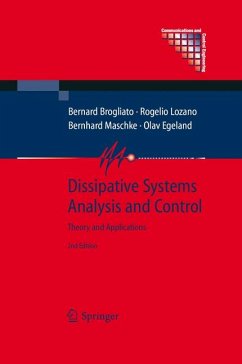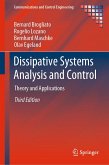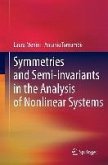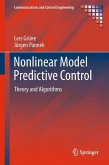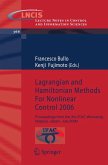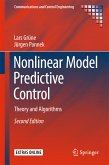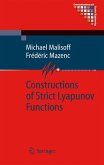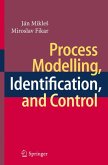The second edition is substantially reorganized both to accommodate new material and to enhance its pedagogical properties. Some of the changes introduced are:
. Complete proofs of the main theorems and lemmas.
. The Kalman-Yakubovich-Popov Lemma for non-minimal realizations, singular systems, and discrete-time systems (linear and nonlinear).
. Passivity of nonsmooth systems (differential inclusions, variational inequalities, Lagrangian systems with complementarity conditions).
. Sections on optimal control and H-infinity theory.
. An enlarged bibliography with more than 550 references, and an augmented index with more than 500 entries.
. An improved appendix with introductions to viscosity solutions, Riccati equations and some useful matrix algebra.
Praise for the first edition:
...an extensive exposition of both the mathematics, physics motivation and control applications of passivity and dissipativity... the richness of a very impressive inventory of illustrating examples stands out as a point of excellence...
Automatica
...an excellent reference for graduate students, engineers and researchers.
International Journal of Adaptive Control and Signal Processing
Dieser Download kann aus rechtlichen Gründen nur mit Rechnungsadresse in A, B, BG, CY, CZ, D, DK, EW, E, FIN, F, GR, HR, H, IRL, I, LT, L, LR, M, NL, PL, P, R, S, SLO, SK ausgeliefert werden.

